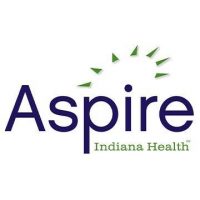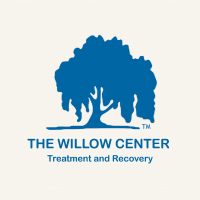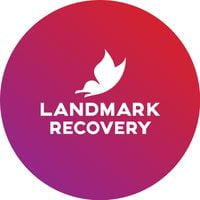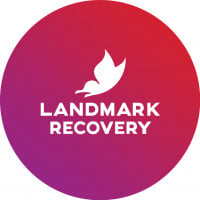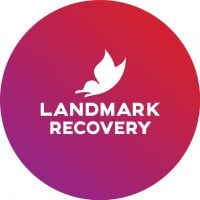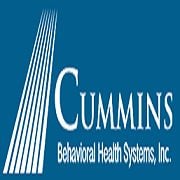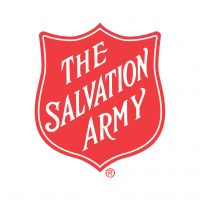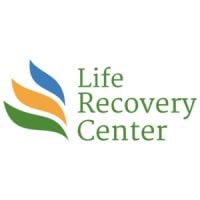Aspire Indiana Health - Lebanon Health Center
Drug Rehab Center in Lebanon, Indiana
Aspire Indiana Health - Lebanon Health Center is an accredited JCAHO rehab center offering comprehensive outpatient, detox, and residential treatment programs for individuals struggling with drug addiction, opioid addiction, dual diagnosis, and mental health issues. It accepts private health insurance.
About Aspire Indiana Health - Lebanon Health Center in Indiana
Aspire Indiana Health - Lebanon Health Center, located in Lebanon, IN, is dedicated to helping individuals overcome substance use disorders and mental health challenges. With a compassionate approach and a focus on comprehensive care, they provide tailored treatment plans to support each client's unique needs.
- Accredited by JCAHO, ensuring high-quality care that meets industry standards
- Offers a seamless continuum of care, including primary medical care, behavioral health therapy, peer support, and more
- Provides a range of treatment options, from outpatient services to residential programs, allowing for individualized care
Aspire Indiana Health - Lebanon Health Center is accredited by JCAHO, demonstrating their commitment to providing top-quality care. They offer a wide range of services, including substance use disorder treatment, mental health care, and dual diagnosis support, all delivered by licensed addiction professionals.
The center treats various addictions, including drug addiction and opioid addiction, as well as mental health issues. They provide multiple levels of care, such as outpatient programs, detoxification services, and residential treatment, ensuring that each individual receives the appropriate level of support for their specific needs.
Genders
Ages
Modality
Additional
Accreditations

JCAHO
Conditions and Issues Treated
Opioid addiction is when someone becomes addicted to opioids. This can happen quickly due to any opioid use. Opioid withdrawal can be uncomfortable and lead the user to continue using even if they want to quit. It’s best to receive inpatient treatment for detoxification.
Even if a person doesn’t need inpatient treatment, it’s recommended to start rehabilitation or at least some kind of outpatient treatment. This is because the withdrawal symptoms from opioids can be uncomfortable and unpleasant, to the point that a person could end up using again or worse.
Detoxification should be done to break the physical addiction of opioids. This can be done with opioid replacement therapy, medication-assisted therapy, or a more traditional detoxification program. Intensive outpatient treatment is a form of addiction care that allows patients to continue living at home while undergoing treatment. This type of care is appropriate for patients who have been treated in residential treatment programs. Intensive outpatient programs include regular visits to the facility providing therapy, and patients gradually return to their routine life. IOP benefits most when patients have a supportive family member or friend to help them recover.
The first step to getting into an intensive outpatient program is to attend a detoxification facility. Detoxification facilities are designed to remove substances from the body safely. The patient will attend sessions designed to help them understand their addiction and its impact on their lives. While in an intensive outpatient program, therapy sessions are scheduled three to five times per week, with the patient attending no more than two sessions in one day.
Levels of Care Offered
This center offers a variety of custom treatment tailored to individual recovery. Currently available are Detox, Outpatient, Residential, with additional therapies available as listed below.
Detox is the process by which toxins are removed from the body. In substance abuse, detox refers to the process of getting rid of the drugs that are already there in the system once the patient stops its further intake. Detox is the initial step in the recovery process. The physiological dependence on the drug over a period can lead to withdrawal symptoms.
Depending on the severity of the symptoms, the detox process is managed either medically or clinically. While Medically assisted detox relies on the usage of specific medicines, clinal or social detox relies on providing emotional and psychological support to the patient.
Outpatient treatment consists of counseling and therapy sessions. The outpatient treatment process begins with the addict’s initial detox period, lasting about ten days. Outpatient treatment is used for those who are at moderate risk for “slipping back” into the addiction. It is also used for those who are not currently experiencing any side effects from withdrawal, can handle social pressure, have a stable living environment, and have a good support system.
Residential treatment programs are those that offer housing and meals in addition to substance abuse treatment. Rehab facilities that offer residential treatment allow patients to focus solely on recovery, in an environment totally separate from their lives. Some rehab centers specialize in short-term residential treatment (a few days to a week or two), while others solely provide treatment on a long-term basis (several weeks to months). Some offer both, and tailor treatment to the patient’s individual requirements.
Therapies & Programs
Individual Therapy is a crucial component of addiction recovery. Therapists work with patients to identify the root of their addiction and figure out how to better handle the issues that led to them using drugs. Individual Therapy is one on one sessions where people meet with their therapist. Individual therapy provides a safe space for people to open up and discuss personal and sensitive topics which they may not feel comfortable discussing in a group setting.
In this type of therapy, therapists can develop specific solutions for each patient, which helps speed up their recovery process. In addiction recovery, therapy is a crucial part. It allows patients to go deep into their core issues and discover how those problems can be better handled now. Therapy can be performed in individual sessions as well as group settings. In individual therapy for addiction, the patient meets with the therapist one-on-one to focus on the underlying issues of addiction and come up with solutions to prevent future abuse.
Family therapy is a crucial part of drug treatment and getting sober. It is one of the most effective ways to help addicts stay on the path to long-term sobriety. One of the most important parts of family therapy is the relapse prevention plan. During treatment, therapists and doctors will often sit down with the addict and their family to develop a plan if the addict ever feels like they want to use again. This plan should involve steps the addict and family can take together to prevent them from relapsing in the future.
An addict’s family can play a vital part in helping them to avoid relapse because they can spot the warning signs and help them get back on track before it becomes too much of a problem. Family therapy is one of the most effective ways to help addicts stay on the path to long-term sobriety.
Group Therapy is employed by drug treatment centers like Aspire Indiana Health - Lebanon Health Center to provide the recovering addict with a platform to talk about their feelings and experiences. It also provides for an opportunity to learn from other addicts who have successfully overcome their addiction. It is recommended that all group members be recovering addicts for this type of therapy to work.
Dialectical behavior therapy (DBT) is a type of cognitive behavioral therapy that is focused on helping those with problematic behaviors caused by intense emotions and thoughts control and regulate their emotions and behavior.
Dialectic Behavior Therapy is beneficial for:
- People who have chronic suicidal thoughts and behaviors
- People who have chronic drug cravings
- People who have difficulty establishing and maintaining personal relationships
- People who have a mental disorder such as Borderline Personality Disorder
- People who have experienced trauma in their life
Cognitive Behavioral Therapy (CBT) is an approach and method in psychotherapy. Aspire Indiana Health - Lebanon Health Center asks people to investigate how their thoughts, including habitual, harmful, and inaccurate ways of thinking, affect behaviors. CBT is based on the idea that rigid, inflexible ways of thinking cause people to have a limited ability to cope with stress, which leads to emotional distress.
Likewise, CBT helps people identify maladaptive behaviors and replace them with more positive behaviors. It makes you look at the way you perceive something and ask: Is this a realistic belief? CBT asks people to look at the role of behaviors and emotional responses and how they may be distressing in one’s life. The goal of CBT is to change the way people think and behave to achieve a more balanced, healthier lifestyle.
Moreover, CBT has been shown to reduce some types of anxiety disorders, depression, and symptoms related to thoughts or actions that are considered harmful.
A 12-Step Program is a common method that is used to treat addiction. This format is used for both drug and alcohol treatment. It is extremely popular and successful for large numbers of people. It is a relatively simple set of steps that are done continuously to move through life with awareness, accountability, and honesty.
The recovery technique used by Alcoholics Anonymous is the 12 step program, but it can relate to any form of addiction. The 12 steps that addicts must take on the road to recovery are explained. Measures include acknowledging that you have a problem and agreeing to turn around your life.
The curriculum, instructed by Aspire Indiana Health - Lebanon Health Center, also requires a belief in a greater power and making amends to others. The 12 step program is the treatment method used by Alcoholics Anonymous, but it can apply to any addiction.
Payment Options Accepted
For specific insurance or payment methods please contact us.
Is your insurance accepted?
Ask an expert, call (888) 674-0062
Aspire Indiana Health Associated Centers
Discover treatment facilities under the same provider.
- Aspire Indiana Health - Mockingbird Hill Recovery Center in Anderson, IN
- Aspire Indiana Health - Noblesville in Noblesville, IN
- Aspire Indiana Health - Dehaven Health Center in Anderson, IN
- Aspire Indiana Health - Elwood Health Center in Elwood, IN
- Aspire Indiana Health - Noblesville Health Center in Noblesville, IN
Learn More About Aspire Indiana Health Centers
Additional Details
Specifics, location, and helpful extra information.
Lebanon, Indiana 46052 Phone Number(765) 482-7100 Meta DetailsUpdated April 15, 2024
Staff Verified
Aspire Indiana Health - Lebanon Health Center Patient Reviews
There are no reviews yet. Be the first one to write one.
Lebanon, Indiana Addiction Information
The state of Indiana ranks 14th in the nation for drug abuse, but 17th for drug overdoses. The state has many high-quality rehabilitation centers, but reports show that there are about 20 deaths per 100,000 people. This is due to its location making it a drug trafficking haven, where many drugs are further distributed into the country.
In 2017, there were 24 overdose deaths in Lebanon, Indiana. 9.4% of high school students in Lebanon reported using an illicit drug. 18.8% reported binge drinking within the past two weeks. The effects of drug addiction and abuse can be devastating. From 2012 to 2016, the number of opioid-related emergency visits increased by 149%. Many sober living options are available in Lebanon for those who need to live in a sober environment.
Treatment in Nearby Cities
- Lebanon, IN (0.9 mi.)
- Sullivan, IN (82.1 mi.)
- Kouts, IN (92.2 mi.)
- Crawfordsville, IN (20.5 mi.)
- Portage, IN (111.7 mi.)
Centers near Aspire Indiana Health - Lebanon Health Center
The facility name, logo and brand are the property and registered trademarks of Aspire Indiana Health - Lebanon Health Center, and are being used for identification and informational purposes only. Use of these names, logos and brands shall not imply endorsement. RehabNow.org is not affiliated with or sponsored by Aspire Indiana Health - Lebanon Health Center.
